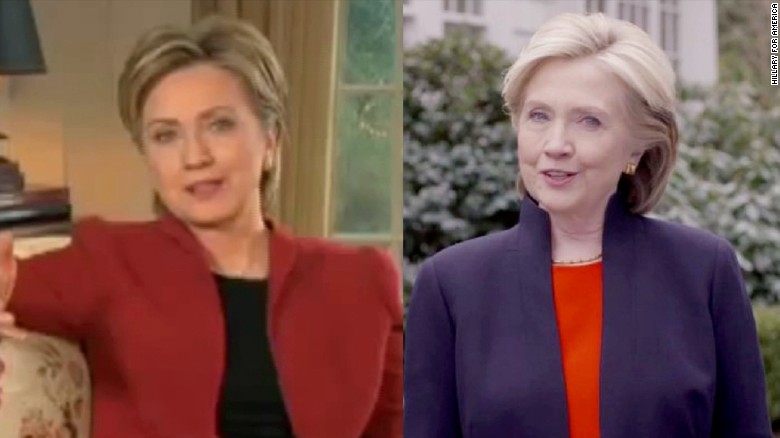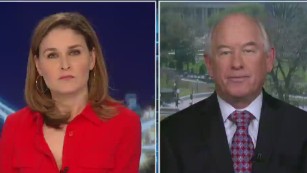Stop calling her Hillary.
Since the news broke last weekend that Hillary Clinton had declared her candidacy, notable among the blitz of news stories are the many that refer to her as the mononymous "Hillary," as if she were a pop star in a pantsuit.
The New York Post published an item titled "Lena Dunham backs Hillary for President" while gossip site TMZ refers to the former FLOTUS, U.S. senator, and secretary of state on a first-name basis throughout its news story on the announcement. Even The New Republic posted a piece about the run called "There's Nothing Inevitable about Hillary."

Peggy Drexler
She's famous enough by now to go by one name, but should she?
While Clinton is arguably more widely known than any of her to-date opponents, she's also a former U.S. senator and secretary of state. She's not Beyoncé. And yet, despite her decorated career in government, we've long called Clinton by her first name, and her first name only, in a way we don't do with men who have held similar, or even vaguely similar, positions of power.
According to a University of Utah study, Clinton was called by her first name four times more than her 2008 rival, Barack Obama, and so it goes this time around. After all, Rand's also running for president. So is Marco. When those guys declared, however, they got headlines that included their last names.

There's a very good reason for that. Presidential candidates are not just professionals, but professionals declaring their candidacy for a position that many consider to be the most powerful in the world. A position that not only deserves formality and respect, but within a global context seems to require it.
Being president of the United States is a serious job. Are there "Ted for President" signs in our future? Unlikely. Were we encouraged to "Vote for Mitt"? Nope. The U.S. Army, meanwhile, is one of the most regimented organizations in the world, whose values put dignity and respect at top priority. Cadets don't call their commanding officers by their first names, even -- maybe especially -- if they're women. So why are we all referring to the possible next commander-in-chief as if we're part of her circle of close pals?
Before you point to the fact that Clinton is not the first Clinton to cross this particular political threshold, the issue at hand is not one of practicality: The American public is smart enough to distinguish between this Clinton and that Clinton.

George W. Bush wasn't the first in his family to run for office, and when he did, legitimate newspapers didn't go around noting the "W" (or even "Dubya") was up for the job. He was just Bush, as he should have been, just as Clinton is just Clinton, a woman who has done a very good job distinguishing herself from her husband without the need to be referred to by her first name in order to avoid a case of mistaken identity.
Of course, the mononymity doesn't seem to be unwelcome: Sections of Clinton's website invite readers to "Like Hillary on Facebook" and read about "Hillary's Story," while the campaign's official hashtag appears to be #Hillary2016. Her campaign chairman reportedly emailed potential campaign donors yesterday with the missive that "It's official: Hillary's running for President."
Perhaps Clinton and her advisers believe the single name makes her more personable, and familiar. Maybe it's an effort to distance Clinton from the other gender-based stereotype slapped on her the last time around, when she was "the bitch" to Sarah Palin's "ditz."

But while we should like our president -- if not desire to have her as a personal friend -- it's far more important to trust, and respect, her -- and that still requires a level of formality. It's important for the American public to be able to imagine electing a leader not despite the fact that she's a woman, or even because she's a woman, but who, very simply, happens to be a woman.
Whether she endorses the idea or not, calling Clinton by her first name serves to, at best, reinforce gender and workplace stereotypes -- that women need to be "approachable," not abrasive or aloof, in order to get the job done and be liked while doing it -- and at worst, infantilize and put her in her place. There's a reason, after all, that we address current and former presidents as Mr. President when we meet them, and not "Hey, Jimmy!"
And if there's a reason Hillary Clinton will be elected as our next president, it's not because she let us call her Hillary.
News Courtesy: www.cnn.com











